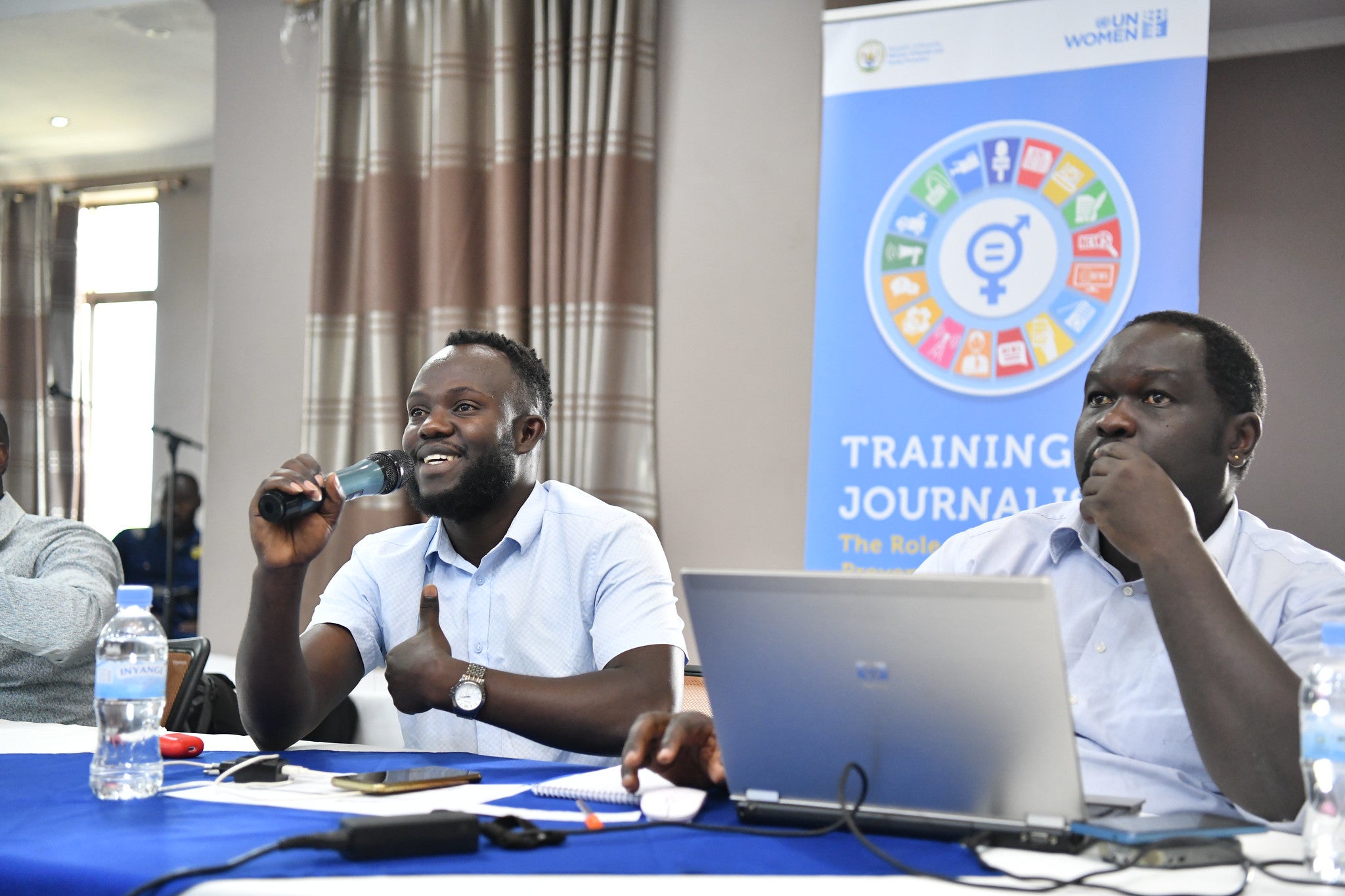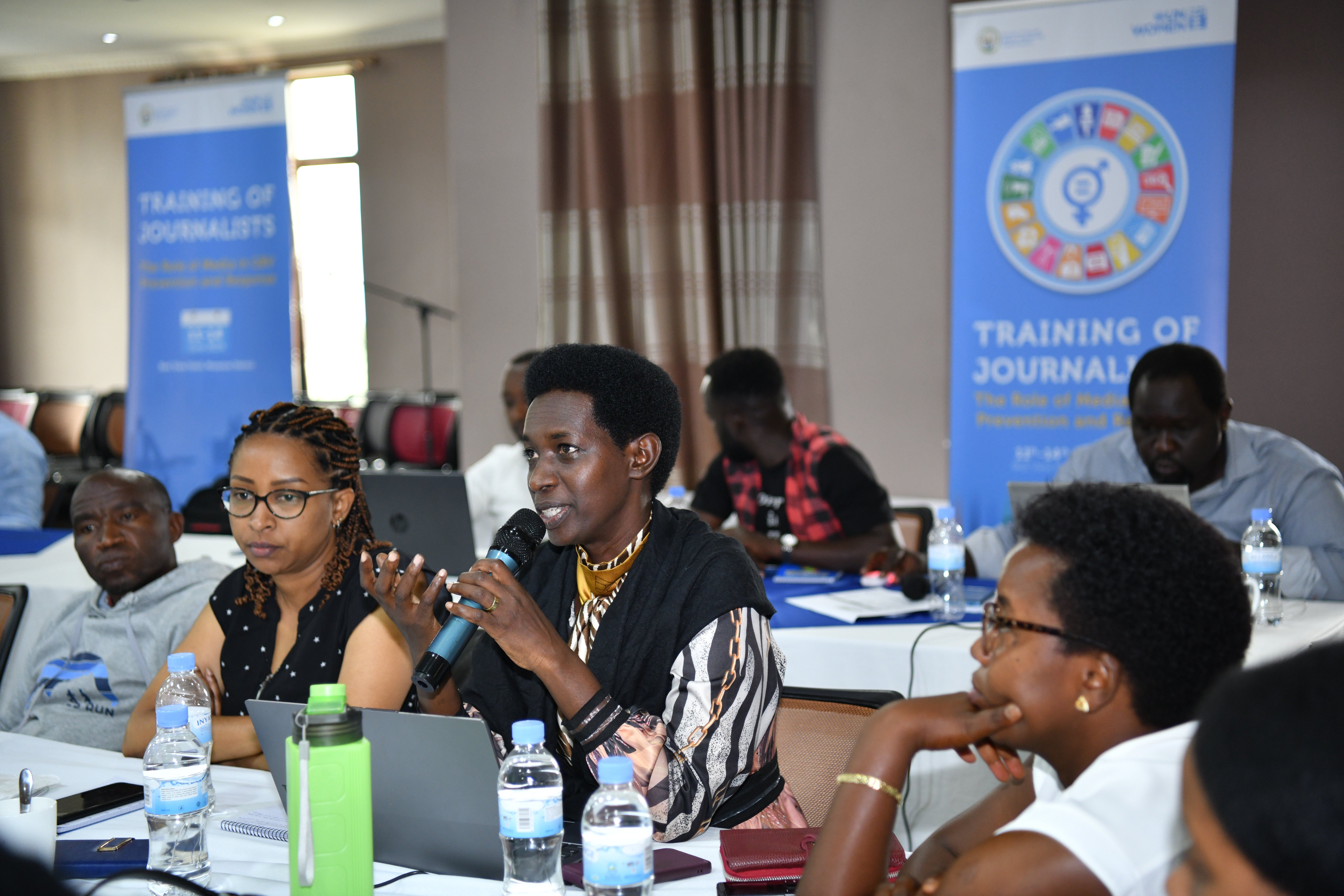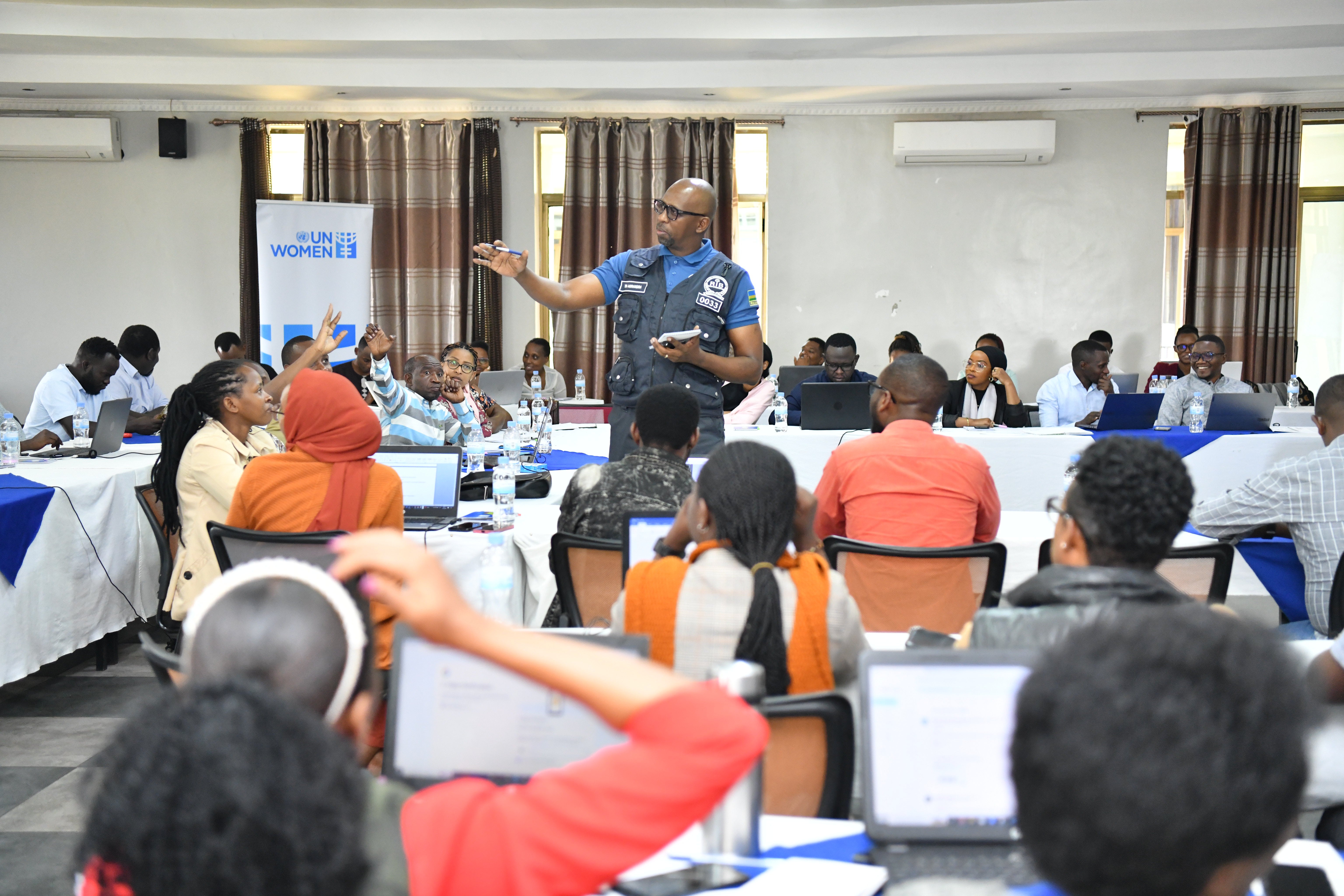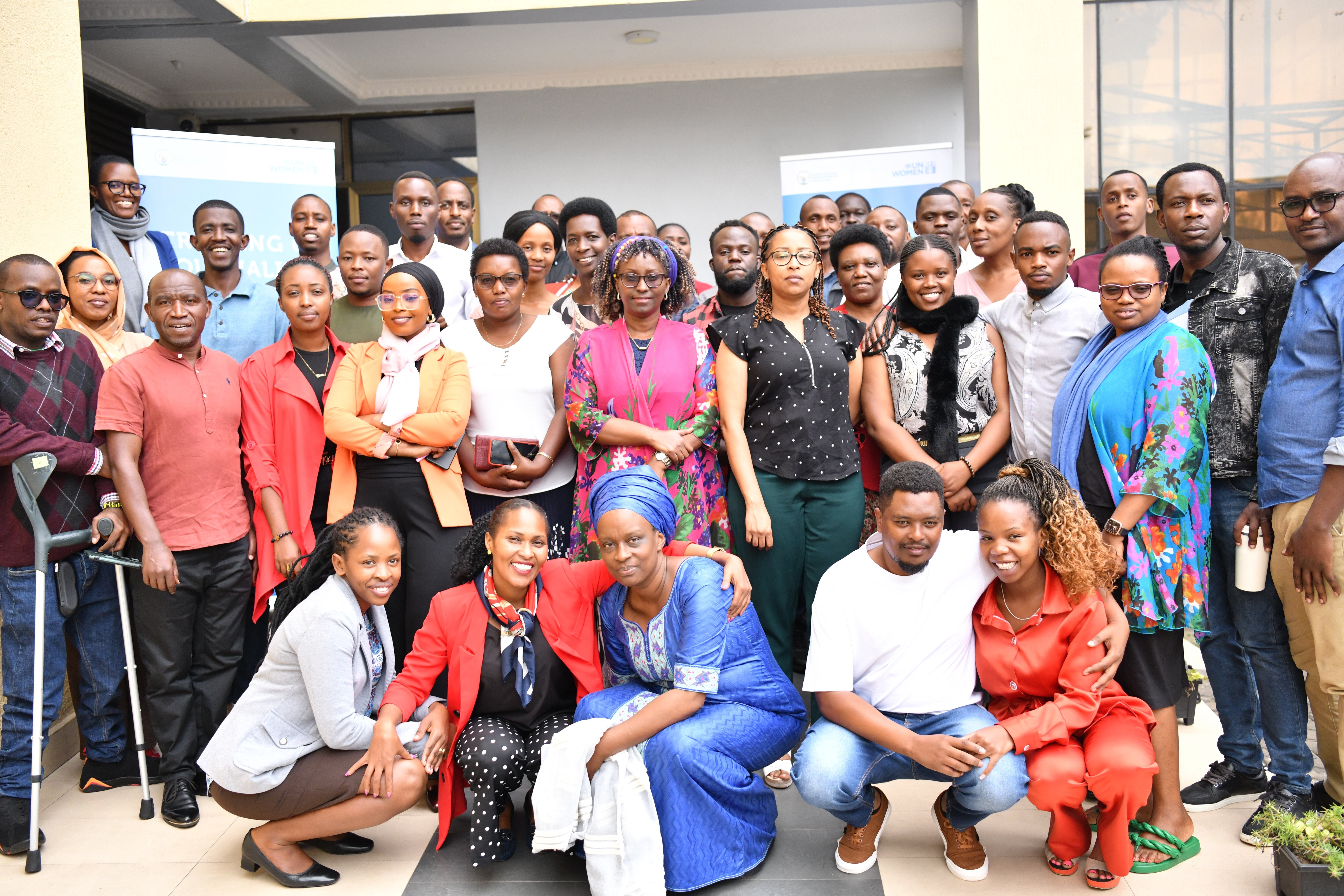Media coverage of GBV in Rwanda: “Addressing capacity gaps and social responsibility.”
Date:

From 12-14 June 2024, UN Women Rwanda and the Ministry of Gender and Family Promotion (MIGEPROF) collaborated to host a three-day training session in Musanze district, aimed at empowering media practitioners to take a proactive role in combating gender-based violence (GBV). The training, which attracted approximately 50 participants including chief editors, journalists, and social media influencers focused significantly on online GBV due to its rising prevalence and often inadequate and inappropriate media coverage.
During the intensive sessions, participants from various media backgrounds, law enforcement, and policy sectors highlighted significant concerns regarding media reporting on GBV. Key issues included:
I) Many media practitioners lack sufficient training and understanding of the complexities of GBV, leading to oversimplified and sometimes biased reporting.
II) Media outlets often prioritize sensationalism and click-worthy headlines which can lead to unethical practices such as victim-blaming and inappropriate use of images that focus on the victim rather than the perpetrator.
III) Deep-rooted patriarchal norms and societal expectations contribute to the perpetuation of harmful stereotypes and victim-blaming attitudes in media coverage of GBV.

The discussions at the training revealed that media outlets in Rwanda do not fully understand the gravity and consequential effects of online violence against women. As one participant indicated, “Journalists often trivialize incidents and their reporting does not meet ethical standards. This can lead to victim-blaming, which adds to the victim’s trauma and shame”.
Furthermore, despite the remarkable diversity of backgrounds and experiences of the training participants, the challenges and gaps identified and prioritized by those media practitioners were strikingly similar, and consistent with the findings of gender and media experts analyzing trends in the coverage of gender-based violence globally. These include biases and stereotypes in GBV reporting, decontextualized stories, missing human right-based approaches, imbalanced sources of information, terminology issues with less neutral language, reporting gaps with many forms of GBV still going underreported or unreported altogether, paucity of positive stories, impact of violence against women journalists, and lack of standards, guidelines and training.
For instance, on the issue of biases and stereotypes in GBV reporting, it was indicated in substance that media content reproduces sexist stereotypes that associate male identity with violence, domination, independence, aggression, and power, while women are linked to emotions, vulnerability, dependency, and sensitivity. In particular, “News reports of violence against women tend to represent women as responsible for the violence of which they are victims either because of their dressing or way of speaking”, which are deemed ‘provocative’, highlighted a participant.
Discussions further indicated that cultural norms and patriarchal attitudes contribute to challenges in addressing online gender-based violence. Victim blaming is still prevalent and societal expectations may hinder some, if not many victims from speaking out. As a result, individuals, especially women, who experience online harassment may face blame rather than support.
Overall, training participants were of the view that Media reporting on online gender-based violence is significantly inadequate. This may include journalists not having a comprehensive understanding of the different forms of violence, leading to oversimplification and misrepresentation. In today’s media landscape, editors use click-worthy headlines and sensationalism to attract, increase and maintain readership. Media reports often look to the survivor’s behaviour to justify violence and use inappropriate images that show survivors as passive, silent and without a way out.

The discussions at the training underscored the urgent need for comprehensive reforms in media reporting practices and made further recommendations and strategies including ethical standards. Participants emphasized the importance of ethical reporting guidelines that avoid sensationalism, victim-blaming, and stigmatization. Sensitivity in language and portrayal of victims and alleged perpetrators was stressed as crucial.
In addition, media advocacy campaigns were proposed to raise awareness among editors and journalists about responsible reporting on GBV. Initiatives to encourage positive and balanced storytelling were also discussed.
Calls were made for enhanced media regulation to hold digital platforms accountable for content related to online GBV, ensuring that offensive remarks and harmful portrayals are mitigated.
Following the training, participants committed to establishing a network of journalists dedicated to combating GBV. This network aims to foster collaboration, share best practices, and uphold standards of professionalism and social responsibility in GBV reporting. By leveraging this platform, media practioners seek to amplify the voices of survivors, challenges stereotypes and advocate for systemic changes in media practices.

In conclusion, the media's role in shaping public perception and policy response to GBV cannot be overstated. As Rwanda continues to address the challenges of online GBV, media practitioners have a pivotal role to play in driving positive change. Through ongoing education, advocacy, and collaborative efforts, the media can become a powerful ally in the fight against GBV, contributing to a more informed, empathetic, and equitable society.
While the training highlighted existing gaps and challenges in GBV reporting, it also sparked a collective commitment among media professionals to uphold the highest standards of ethical reporting and social responsibility in Rwanda's media landscape.